We challenged Samsung and BlackBerry over their Android security claims
Which one is right?
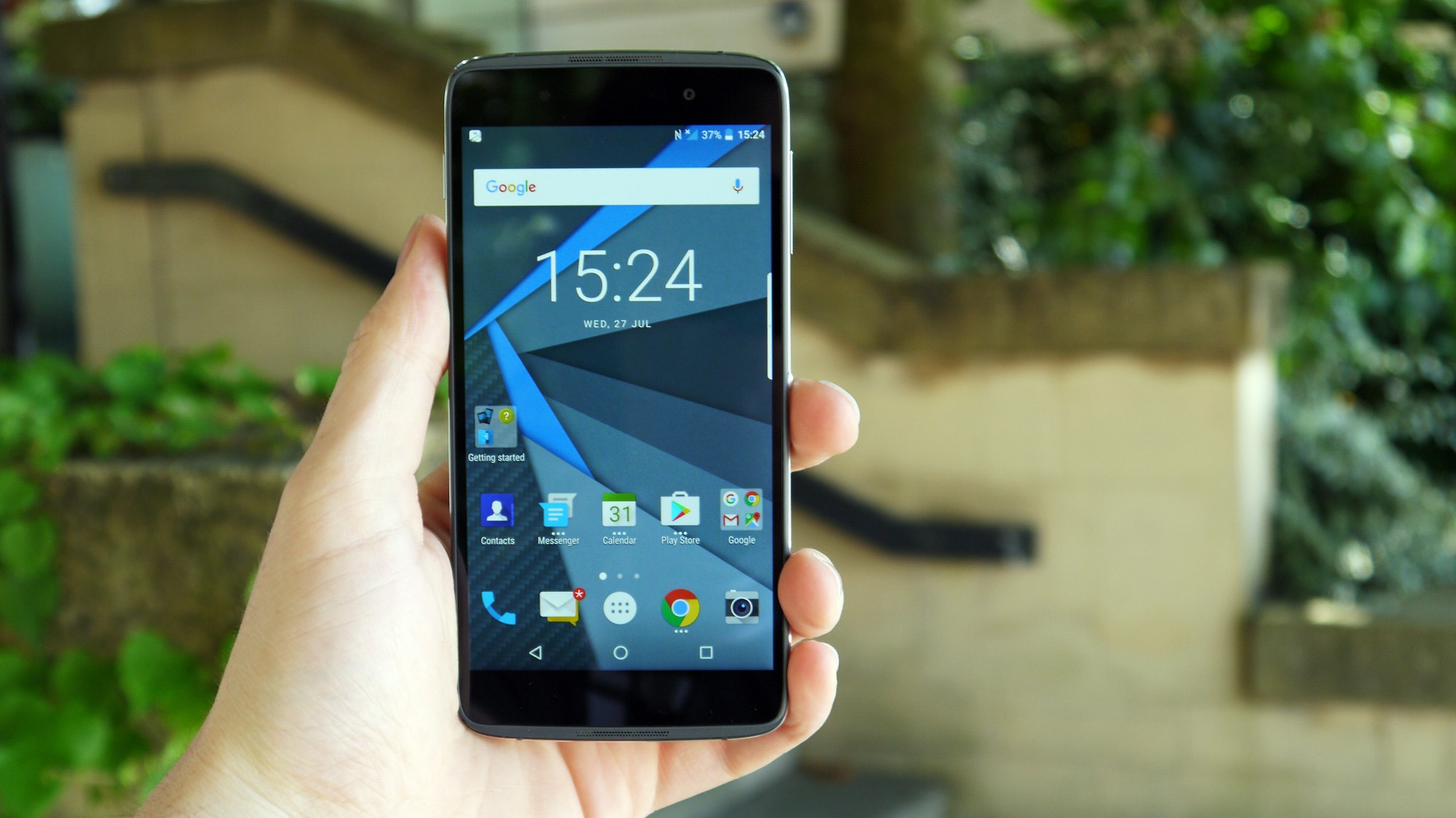
BlackBerry claims to have "the world's most secure Android smartphone" in the DTEK50. The slogan is splashed across its website and can be seen on advertising hoardings in major cities - it really has gone all-out.
There is a problem though. BlackBerry isn't the only one making the claim.
Whether it's for business, personal or private reasons, some people just need to know they have the most secure phone that money can buy - but in 2016 that's proving quite difficult.
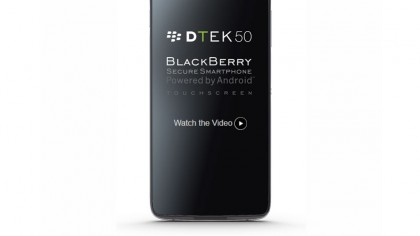
Samsung's recently launched Galaxy Note 7, BlackBerry's new DTEK50 and plucky up-start Sirin's Solarin phone all make the claim to be the most secure Android phone you can buy.
Security is not a new selling point for mobile phones, but this is the first time three companies have each claimed to have the most secure Android device on the market, making it very confusing for those looking for the highest security phone.
Conor Pierce, Vice President of IT and Mobile at Samsung UK told TechRadar, "Iris scanning delivers a hundred times more secure security than a fingerprint and a more reliable security solution on your device.
"That coupled with the Knox solution, it [the Galaxy Note 7] is the most secure device you can have."
Sign up for breaking news, reviews, opinion, top tech deals, and more.
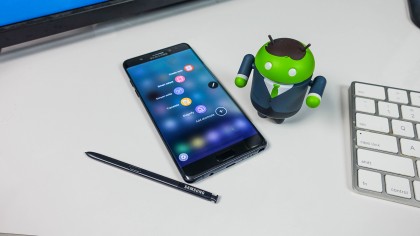
When asked if the Galaxy Note 7 is more secure than the BlackBerry DTEK50, Pierce confirmed Samsung believes it is. He cited the combination of its Knox security software and iris scanning tech as offering military grade security.
Controversial claims
But BlackBerry has marketed the DTEK50 as the most secure Android phone you can buy right – even its YouTube ad opens with the words "Introducing the world's most secure Android smartphone".
When TechRadar put Samsung's claims to BlackBerry, the Canadian firm stood by its title.
A BlackBerry spokesperson told TechRadar, "The DTEK50 has many security advantages over Knox, including rapid patching, the DTEK application, and platform hardening features such as zygote ASLR.
"Security is about protecting the weakest link and no single feature can instantly make a platform secure.
"Claiming that anything is '100 times more secure' is very bold and we look forward to seeing the technical documentation and independent third-party verification of this claim."
Iris scanning is also under scrutiny by some security experts on whether it poses more issues than it solves.
Charles Read, UK Regional Director at OneLogin, told The Mirror, "Biometrics may be more convenient for consumers but as the legal and privacy implications evolve, the related security risks with using this form of access need to be considered."
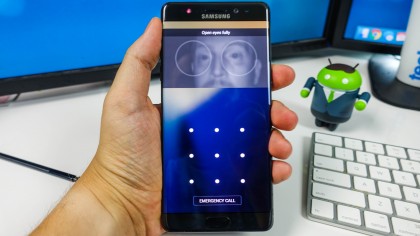
"It turns out this new wave of biometric techniques put consumers in a new kind of risk as [while] they can easily mitigate passwords hacks by simply changing passwords, the hack of a fingerprint or iris scan however can lead to a lifetime of problems for consumers."
These issues don't just refer to iris scanners - it could also pose issues for fingerprint sensors, which are available on most high-end smartphones.
A Samsung spokesperson told TechRadar, "The Galaxy Note 7 provides best-in-class security features with biometric authentication to keep users' personal data safe.
"In addition to fingerprint scanning capabilities, the Galaxy Note 7 features new iris scanning technology coupled with our trusted, defence-grade Knox security platform, which recently received the most "strong" ratings of any mobile security platform in Gartner's 'Mobile Device Security: A Comparison of Platforms' study."
That study analysed twelve different mobile device operating systems including Android 6 Marshmallow, which both the Galaxy Note 7 and BlackBerry DTEK 50 run.
Knox was analysed as a separate enterprise management tool with the results included in the test - but this all took place before DTEK's security option for BlackBerry launched.
Three horse race
It's not just Samsung and BlackBerry fighting it out though, there's a third horse in this race in newbie Sirin and its Solarin phone.
You may have read about it as the phone costing almost £10,000 and its extravagant star-studded launch party attended by Tom Hardy, Josh Brolin and Leonardo Di Caprio.
Solarin offers a unique security service that BlackBerry and Samsung do not, but you'll need to pay for it.
A spokesperson for Solarin told TechRadar its "unique solution provides two levels of security in order to meet the needs of our customers, as security features are only effective if deployed and not cumbersome to the user."
"Solarin is protected by Zimperium state-of-the-art threat protection, maintained by behaviour-based analytics.
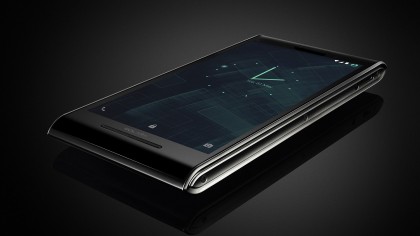
"We consider these to be the most effective method of real-time defense, as they work by identifying unusual behavior and taking real-time action to guard your private information, as opposed to tolerating the delay necessary for a security breach to be identified, logged, recognized and subsequent response deployed."
BlackBerry and Samsung don't offer this type of security on either the Galaxy Note 7 or the DTEK 50.
The spokesperson continued, "Solarin's unique secure zone is facilitate by chip-to-chip encryption, physically ring-fencing your private communications and affording the most secure solutions outside of the military.
"These communications are conveyed by 256-bit AES encryption, the same technology that militaries around the world use to protect their communications."
Encryption is an option available on both the BlackBerry DTEK 50 and the Samsung Galaxy Note 7 through the Knox application.
The DTEK 50 has your data encrypted to start with, but then a feature within the DTEK app allows you to set up "secure start-up" which uses your phone screen to strengthen the encryption.
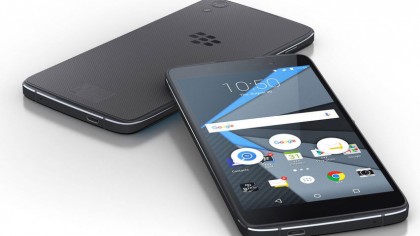
It's difficult to say which manufacturer has the most secure Android phone then, with no one willing to back down.
Unless you're disgustingly wealthy, the real showdown here is between Samsung and BlackBerry and if you're that concerned with smartphone security both sides offer compelling privacy options.
Can't pick a side? Then let us help.

James is the Editor-in-Chief at Android Police. Previously, he was Senior Phones Editor for TechRadar, and he has covered smartphones and the mobile space for the best part of a decade bringing you news on all the big announcements from top manufacturers making mobile phones and other portable gadgets. James is often testing out and reviewing the latest and greatest mobile phones, smartwatches, tablets, virtual reality headsets, fitness trackers and more. He once fell over.